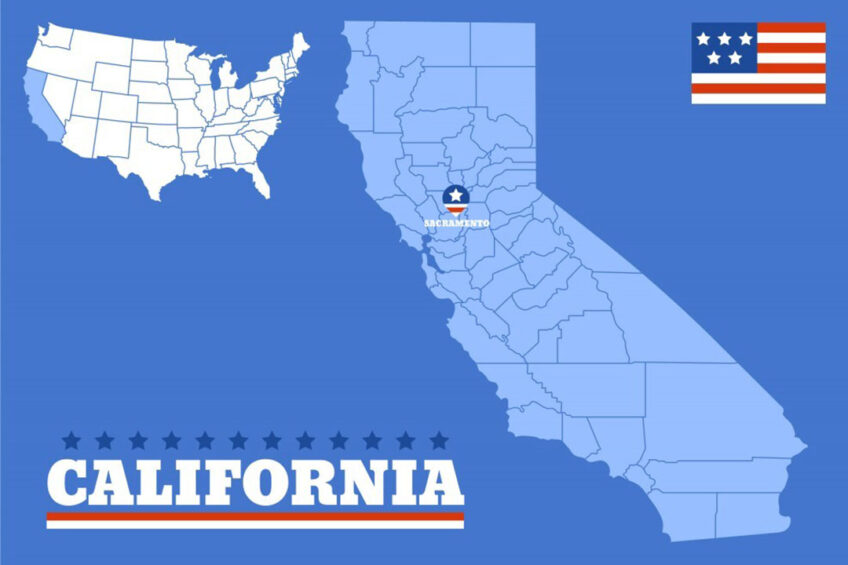California law bans eggs that are not from cage-free hens

Compliance seems to be complete, but the US Supreme Court has just agreed to hear arguments against state animal welfare regulations, which have national reach.
In 2018 voters in the US state of California approved Proposition 12, also known as the Farm Animal Confinement Initiative. Proposition 12 requires that animals held in buildings, such as laying hens, breeding sows, or veal calves, “be housed in confinement systems that comply with specific standards for freedom of movement, cage-free design, and minimum floor space.”
Implementation of the law began on 1 January 2022. That means all eggs produced in California must be procured only from hens in cage-free housing. The state of California has the largest population (almost 40 million people) of any state. A large amount of the eggs consumed by Californians are produced within its borders, but some are shipped in from other states.
However, only eggs from cage-free hens can be sold in California, no matter where they are produced. That is, egg producers both inside and outside California must comply with Proposition 12 because it prohibits any business from knowingly engaging in the sale within the state of California of shell/liquid eggs, pork and veal derived from birds, pigs, or veal calves housed in a “cruel” manner contrary to Proposition 12 housing standards.
In July 2021, the United Egg Association’s (UEA) Further Processors Division (which represents firms that process eggs into food products) sent a letter to the California Department of Food and Agriculture (CDFA) asking for clarifications related to Proposition 12, but stated that “our members are committed to complying with the regulations”.
Indeed, 2 of the largest US poultry companies – Tyson Foods and Hormel – announced some time ago that they will comply with Proposition 12. As far back as October 2020, Hormel stated that “while it is still awaiting final clarity on specific details and rules, the company is preparing to fully comply when the law goes into effect on January 1, 2022.”
Legal battles
There have been 2 lawsuits contesting Proposition 12. The North American Meat Institute challenged it in 2021 on the basis that over half of US state governments disagree with one state applying its laws to other states. The Institute has also noted that Proposition 12 threatens “the free flow of interstate commerce”. However, in June 2021, the US Supreme Court declined to review the legislation.
However, the Supreme Court has just agreed to hear arguments related to a lawsuit against California started by the American Farm Bureau Federation and the National Pork Producers Council.
The American Farm Bureau Federation state that it is “pleased with the Supreme Court’s decision to consider the constitutionality of California’s law imposing arbitrary requirements on farmers well outside its borders… One state’s misguided law should not dictate farming practices for an entire nation.”
Opposition, then compliance
The Association of California Egg Farmers had strongly opposed the timeline for implementation of Proposition 12, and still states this opposition on its website. The Association also points out that California egg farmers had been transitioning a percentage of hens to cage-free housing every year, and were on track for 100% cage-free by 2025. It had estimated that only 65% of the California will be produced from hens in cage-free housing by 1 January 2022.
Presumably, all laying hen housing in California is now cage-free. There is no evidence on the internet to the contrary. Confirmation, however, is not possible as there is no contact information available for the Association of California Egg Farmers.
Join 31,000+ subscribers
Subscribe to our newsletter to stay updated about all the need-to-know content in the poultry sector, three times a week. Beheer
Beheer











 WP Admin
WP Admin  Bewerk bericht
Bewerk bericht